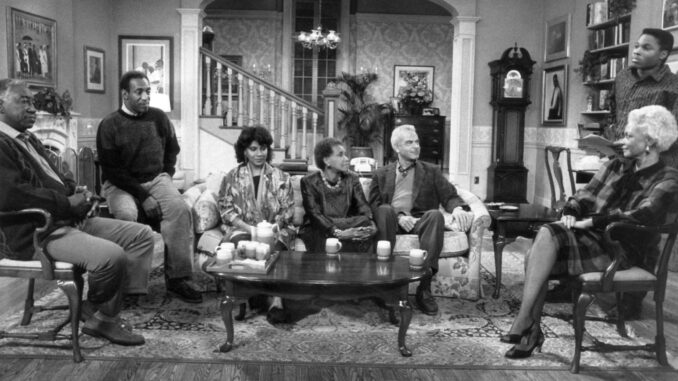
“The Cosby Show,” which premiered in 1984, quickly became one of the most beloved television programs in America and around the world.
With its portrayal of a successful and happy Black family, the show provided not only entertainment but also opened up dialogues about race, family, and culture. However, behind the bright smiles and humorous situations lay a significant mystery that gradually unfolded, shaking the entire entertainment industry to its core.
Bill Cosby, who became a cultural icon through his portrayal of Cliff Huxtable, was gradually exposed by serious allegations of sexual assault. The warmth and laughter associated with his character on the show now feel uncomfortable and bitter, leaving viewers grappling with the notion of a grand deception. The contrast between the ideal family image and Cosby’s dark reality has sparked many questions about truth and moral values in the entertainment industry.

From the cheerful moments shared among the Huxtable family to the legal scandals surrounding Cosby, “The Cosby Show” has evolved from a symbol of progress in racial representation on screen to a sobering reminder that fame can conceal painful truths. As victims bravely step forward to share their stories, the narrative of “The Cosby Show” has transformed from lighthearted comedy into a cautionary tale about justice and the need to confront reality.
While the show contributed to changing the American perception of Black individuals, it now also compels us to reevaluate the legends we create. “The Cosby Show” is not just a part of television history; it serves as a crucial element of a significant social dialogue that we cannot ignore. Let’s explore the mysteries, the smiles, and the pain that “The Cosby Show” has left in the minds of its audience, creating a narrative rich in humanity and irony about the power of media and the importance of truth.
